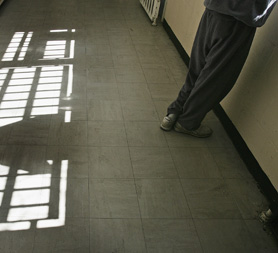Sex offenders court ruling ‘offensive’, says Cameron
David Cameron tells MPs that he is “appalled” by a Supreme Court decision that sex offenders can appeal against being put on a register for life. Ministers will “do the minimum possible” to comply.

The Home Secretary, Theresa May, told MPs the Government would “set the bar as high as possible” on appeals and that the police – and not the courts – would make the final decision.
Under the current rules anyone convicted of at least 30 months in prison for a sexual offence is placed on the register for life. Last year the Supreme Court made a judgement that having no chance to be removed from the register over a lifetime was incompatible with the European Convention of Human Rights.
The President of the court, Lord Phillips, said at the time that it was obvious there must be some circumstances in which an appropriate tribunal could reliably conclude that the risk of an individual carrying out a further sexual offence could be discounted.
‘We will do the minimum possible’
At Prime Minister’s Questions in the Commons, the Conservative MP for Shipley, Phillip Davies, asked David Cameron what he would be doing about the ruling, saying: “My constituents are sick to the back teeth of human rights of prisoners and criminals being put before the rights of law abiding citizens.”
In response, Mr Cameron said the ruling was “offensive” and “flies in the face of common sense”.
He added: “We will take the minimum possible approach to this ruling and will use this opportunity to close down some loopholes in the sex offenders register.”
He said the Government would make it compulsory that offenders have to report before travel and ban name changes by deed poll that allow an offender to hide the fact that they are on the list.
Parliament versus the courts
Mr Cameron said that he hoped a British Bill of Rights would mean decisions like these could only be made in Parliament, saying: ” It’s about time that decisions are made in this Parliament rather than in the courts.”
In a Commons statement Theresa May, reiterated the Government’s opposition to the Supreme Court decision.
She said: “This places the rights of sex offenders above the right of the public to be protected from the risk of reoffending. This Government is determined to do everything we can to protect the public. We will make the minimum possible changes to the law in order to comply with this ruling.”
Under the plans she announced, offenders will only be able to apply for a review 15 years after leaving custody. She said that in England and Wales there will be no automatic appeals and it will be police who make the final decision about whether someone can be removed from the register. She compared this to Scotland, where it is the courts who decide.
Ms May said: “We will deliberately set the bar as high as possible. Police are best placed to assess reoffending risk. There will be no right of appeal against the decision and the decision will be final. Sex offenders who continue to pose a risk will remain on the list for life if necessary.”
Proposed changes
The Home Secretary also announced details of a consultation that she said would close down loopholes in the current system. These are:
- Offenders will have to report to the authorities before travelling abroad, even for only one day. They are currently allowed to travel for three days without notification.
- Offenders will have to notify authorities if they live in a house with a child under the age of 18
- Offenders will have have to provide notification of their address on a weekly basis when there is no fixed abode
- Rules on name changing will be tightened so that offenders cannot escape being on the register by changing their name by deed poll
Supreme Court decision
The Supreme Court case was started in 2008 by two convicted sex offenders who claimed that being on the register indefinitely with no right of review was incompatible with their rights to respect for private and family life.
They won their case in the High Court, and the Supreme Court rejected a Home Office appeal. Lord Phillips said it was obvious that there must be some circumstances in which an approproate tribunal could reliably conclude that the risk of an individual carrying out a further sexual offence could be discounted.
One of the men at the heart of the case, known only as F, was given a 30 month sentence for raping a 6 year old boy when he was 11. He said that being on the register had prevented him from playing rugby and going on family holidays abroad.
At the last count, in October 2010, there were just under 35,000 registered sex offenders were living in the community in England and Wales. A total of 48,000 people are subject to the restrictions imposed by the sex offenders register.